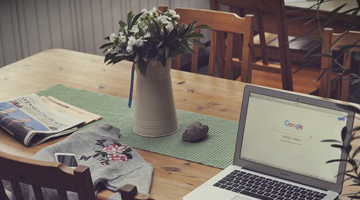 Coronavirus: How can you best work remotely?
Coronavirus: How can you best work remotely?
Ahead of any potential coronavirus outbreak restrictions, many organisations are making contingency plans to encourage staff to work from home. Thousands of people already do this on a regular or occasional basis, but what if it’s something you have never done before?
Nic Wray – who has worked remotely for the charity the
British Tinnitus Association for the last five years – gives her top tips for not just surviving, but thriving if you unexpectedly get thrust into this situation.
-
Get organised
Now is probably a good time to make sure that you have all that you need to be able to work from home – a laptop might only be the start of it. What about printing? Access to shared files? What’s your WiFi router password?
A separate workspace is going to be more important too, so that you can easily start – and end – your day. Don’t under-estimate the power of closing a door on your work. A discrete space with a desk and office chair, if you can manage it, will also be better for you – dining chairs or sofas are great for the odd day, but will get uncomfortable for longer periods.
-
Set realistic goals
A lot of people say “I get so much more done when I work from home” and that may well be the case for you. But be realistic with what you can achieve. You don’t have to demonstrate you’re superhuman, churning out work non-stop, to prove yourself just because you’re out of sight.
Make sure your goals are clear and devise a plan to achieve them, but follow the tempo of your office-based work where you can.
-
Respect your work/life balance
It can be really difficult when working from home to switch off, especially if your laptop and phone are always on hand. This for me is a harder problem than ignoring other distractions, such as the lure of daytime TV, loading the dishwasher or making endless cups of tea. Try to stick to your usual office start and finish times and take a proper break in the middle of the day. A 20 minute breathing space on the sofa feels luxurious and you can return to work cheerfully.
-
Look after your well-being

As well as making sure your work space is comfortable, make sure you’re looking after your mental and physical wellbeing. Unless you are having to self-isolate, get out of the house every day – in daylight – even if it’s just a walk around the block. Working from home is a great opportunity to have something other than a sandwich for lunch, too.
One of the drawbacks of working from home is the lack of opportunity to have a bit of social chitchat or support from colleagues. The little things really do mean a lot – the offer of tea, a shared smile when a task is signed off, even the accountant’s bad jokes. If you can, make sure you have more interaction with friends and family, or find a local meet up. If social time is restricted due to quarantine or self-isolation, make sure you spend at least a little time every day doing something you love (that’s not your job).
-
Communicate
Set expectations now for how to communicate, and when you check in with your team and line managers. There’s no hard and fast rules here, it’s working out what feels comfortable and realistic.
Although I use email a lot, as does everyone, I probably use the phone more than when I was office based – it helps keep the feeling of connection with the team, but it also helps with my mental well-being too.
And finally, one top tip from my friend Liz Dexter of
LibroEditing, who also works from home gave me when I started working remotely – wash up and reuse your mug! Do not use all the mugs in the house…
What would be your top tips for a new homeworker? Have you got any advice to become more effective when working remotely?
For more information on handling communication around coronavirus in your organisation, see the Local Public Services Communications advice here and check out Stephen Waddington’s latest blog on Influence.
Photo by
Agnieszka Boeske and
Madison Nickel on
Unsplash